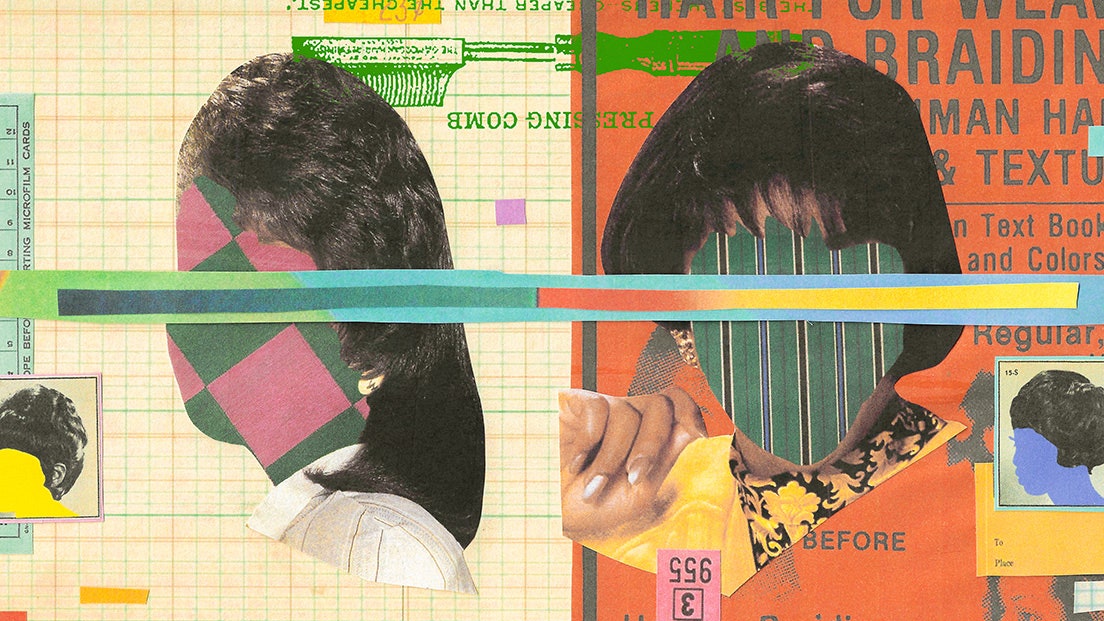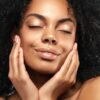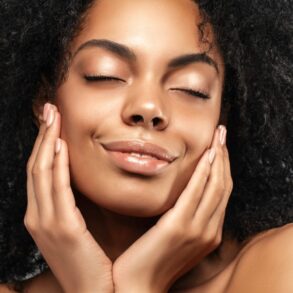
For some, just having the conversation around the Black hair process be consistently demystified is great to see on such a national level. “I love how the conversation around Kamala Harris’s silk press is getting more people talking about hair care, especially with the fall season and the upcoming presidential election boosting interest,” Brittany Thompson says. “I’ve noticed so many people on TikTok and Instagram embracing the trend of saying, ‘I don’t use a curling iron; I use a round brush.’ Having someone like Kamala rocking a silk press makes it feel so much more relatable, especially for women who want to celebrate their natural textures while keeping that sleek vibe.”
Anele, 30, from Austin, Texas is one of many Black women who grew up getting relaxers. Before the famed silk press took over in the early 2000s — after scientists found links to higher chances of uterine cancer — she recalls getting “hit with the Just For Me” as soon as her hair could tangle. “Any other hair treatment was considered a luxury,” she says. It wasn’t until she was about 17 years old did she get her first silk press. Her grandmother paid for her to go to a beauty school to get her hair done. It was a birthday gift.
“There weren’t many available stylists at the beauty school, let alone Black ones, so I was paired with a woman who — bless her heart — clearly had never experienced textured hair,” she says. “The poor lady was flummoxed. At the time, I had choppy home relaxer hair, so it was kinda straight, kinda wavy, with tightly curled new growth at the root. She kept calling over the instructor, who advised her to use the hot comb, and eventually stepped in to help so my hair would be done faster, explaining that my hair was ‘so curly it needed extra time.’”
The team of stylists rushed through her treatment — the school was getting ready to close. They ended up burning her temple with the hot comb. Her hair lasted two days; the scar lasted a few weeks.
Now, as an adult, Anele is strategic with her silk presses. She only gets them in April, November, or December, using it as a time to trim her hair. “I hope that young girls aren’t being pressured into straightening their hair like we were, and are no longer getting bamboozled by the girls on the Just For Me boxes posing with fresh presses and not relaxers,” she says. “Instead, I hope younger generations are being encouraged to practice autonomy with their hair.”
That autonomy has taken shape in the last fifteen years. The silk press, while still a popular selection in the Rolodex of Black hairstyles, is just one of many styles after the natural hair movement superseded the use of perms. According to Mintel, things took a turn in 2008 with a 26% decline in relaxer sales. Perms once compromised a fifth of total Black haircare transactions. The natural hair industrial complex slowly took over. And the launch of the CROWN Act in 2019 helped shape how women began to view their natural hair.
This post was originally published on this site be sure to check out more of their content.






